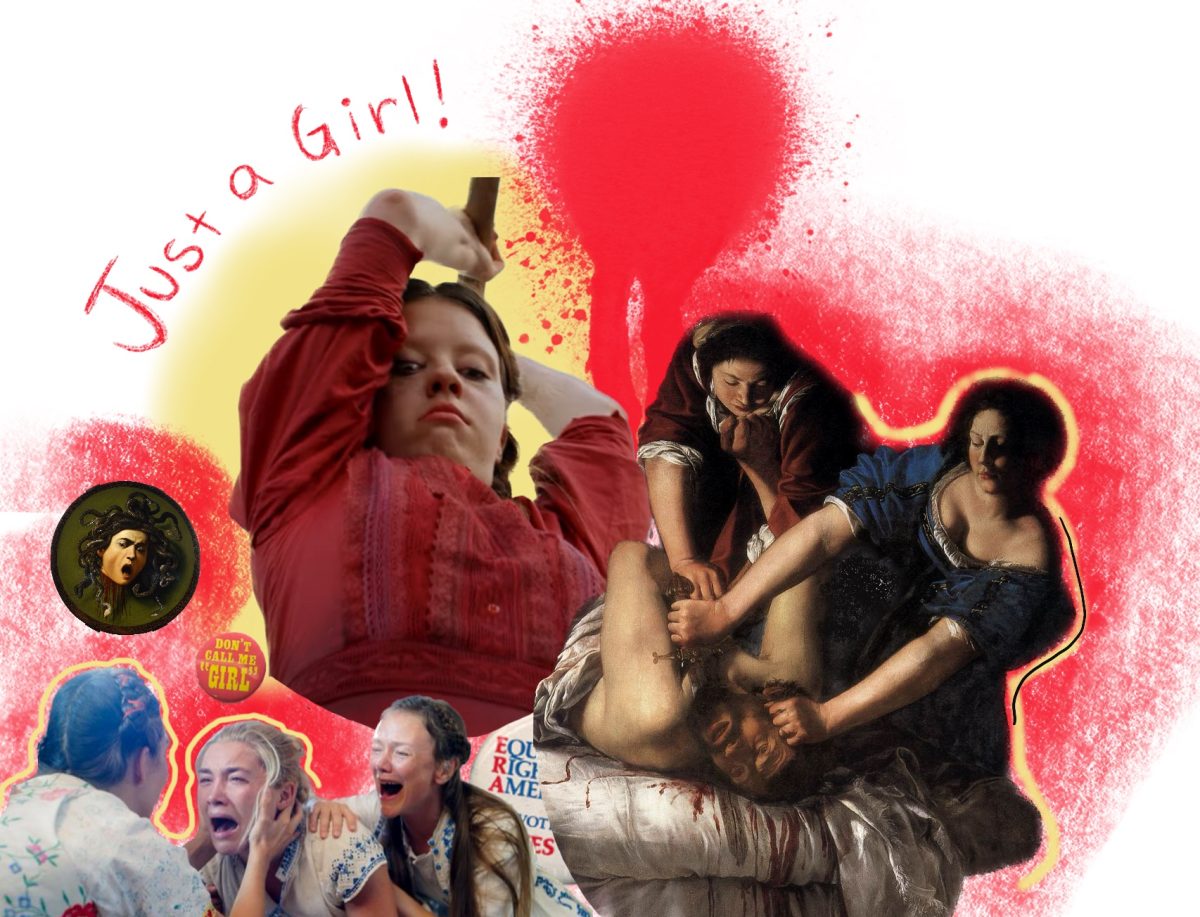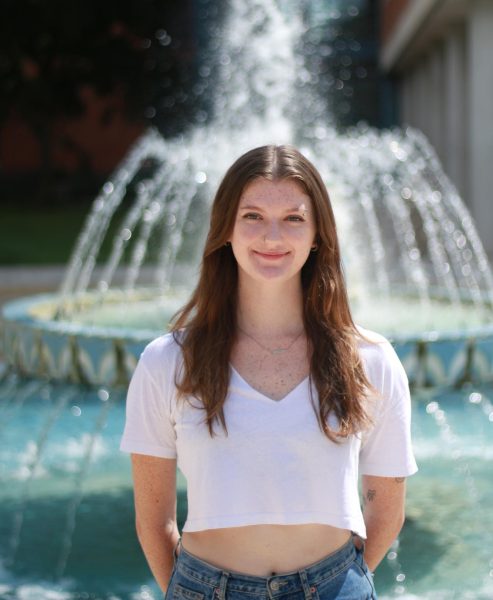Actresses like Mia Goth and Florence Pugh have recently been all the rage … female rage, that is. With movies like “X” and “Pearl,” “Don’t Worry Darling” and “Midsommar,” contemporary cinema is finally making room in popular culture for women to let out all the pent-up anger that society has pushed down for far too long.
Historically, female anger is pathologized as hysteria or madness. With the slew of contemporary films depicting angry women, we are breaking this association and celebrating female anger in media. While men’s anger has been honored since the dawn of storytelling, female anger is just now starting to gain the same respect. However, there is still much work to do — the everyday female experience shows that female anger has yet to be accepted in the same way as male anger.
Angry women have always had a cultural presence. From Classical depictions of Medusa to the 17th century’s “Judith beheading Holofernes” to the 19th century’s Virginia Woolf and Charlotte Bronte to today’s Florence Pugh, there has always been art that does justice to the complexity of female emotion. What has changed, however, is the mainstream acceptance.
Today, beyond just cinema, feminine anger finds a home in the hands of creatives across the board. Author Ottessa Moshfegh, best known for “My Year of Rest and Relaxation,” “Eileen” and “Death in Her Hands,” writes of women at odds with society who struggle to find an outlet for their emotions. Singer-songwriter Fiona Apple writes cutting, hard-hitting lyrics exploring rage, anger, jealousy and sadness, best seen in her songs “Limp,” “Get Gone” and “A Mistake.”
Women are psychologically conditioned to internalize anger, put on a smile and “just be nice.” Studies published in Psychological Science and Science Daily, among many other organizations, show that male anger is appreciated and respected. In contrast, female anger reduces a woman’s status and puts her capabilities into question. Angry women are often seen or depicted as overdramatic or irrational with their anger crudely boiled down to two-dimensional stereotypes like the crazy ex-girlfriend, feminazi or the angry Black woman, just to name a few. The female characters in movies like “Scott Pilgrim vs. the World,” “The Proposal” and “Mean Girls” all engage with these simplistic narratives or paint their anger as if it is something wrong with them, something to be fixed.
Luckily, there are more and more films breaking from this norm, like Olivia Wilde’s 2022 film “Don’t Worry Darling.” The film follows Alice Chambers (Florence Pugh) as she unknowingly lives in a virtual reality created for people to live in an idealized mid-20th century world of domesticity. Eventually, Alice is driven to hysteria by her husband, Jack, a man she loved who expects her to forgive him despite forcing her to live in his fabricated world. Jack claims he saved her from having to work all the time, but Alice is furious because he stripped her of the right to her own life, forcing her to live his idealized life of the submissive, homemaker wife.
“Midsommar,” directed by Ari Aster in 2019 and also starring Florence Pugh, follows a couple, Dani and Christian, who is invited to attend a midsummer festival in rural Sweden. The film explores a small community with cult-like traditions that are, at times, bizarre and horrifying. Dani (Florence Pugh) experienced the homicide-suicide of her entire family before embarking on the trip to Sweden. She carries enormous burdens of grief, sadness, anger and confusion and finds no support from Christian, her boyfriend.
After seeing Christian cheating on her with a woman from the commune, Dani’s pent-up emotions come pouring out, she screams, wails and cries, and a group of women cry and scream with her. In this scene, Florence Pugh and her fellow actresses pull off a powerful performance that proves a keystone of the film. Pugh’s vulnerability is frightening in its force to the point that, as a viewer, we are uncomfortable with her raw, intense screams. Even though it is an awkward and painful scene to sit through, the extreme emotional release is cathartic to see on screen after watching Dani try to hold herself together for so long.
Ti West’s “Pearl” (2022) is most widely known for the scene where Pearl, played by Mia Goth, stands on stage with her blue eyeshadow and red dress and shrieks, “Please, I’m a star,” begging for a chance at fame. For Pearl, all she wants is to escape her claustrophobic rural life and make a break for stardom. It is when her dreams are crushed that she turns to hysterics, which turns into a murderous rampage. In Mia Goth’s fantastic screams, she isn’t just screaming because she didn’t get the part, but rather expressing fury about the limitations and cruelties she faces as a woman of her time.
When we appreciate female rage, we are reveling in the symbolism of the powerful emotional release of women, something society often discourages or dismisses as women being over-emotional or dramatic. However, it’s clear audiences feel the satisfaction and power of female rage across all different types of media. From the literary world, Sylvia Plath’s “Bell Jar” and Toni Morrison’s “Beloved,” to Gwen Stefani in No Doubt’s “Just a Girl” and punk bands like Bikini Kill, feminine anger is all the rage.









